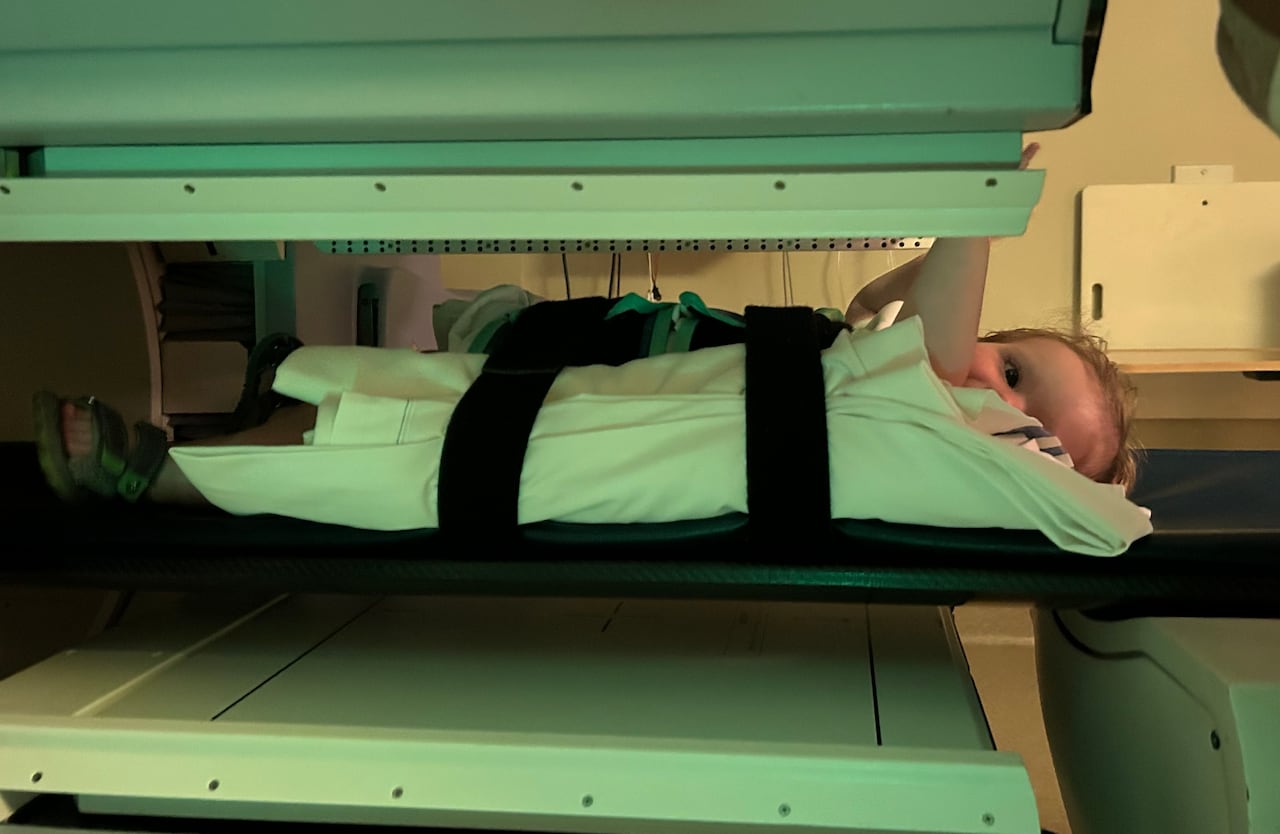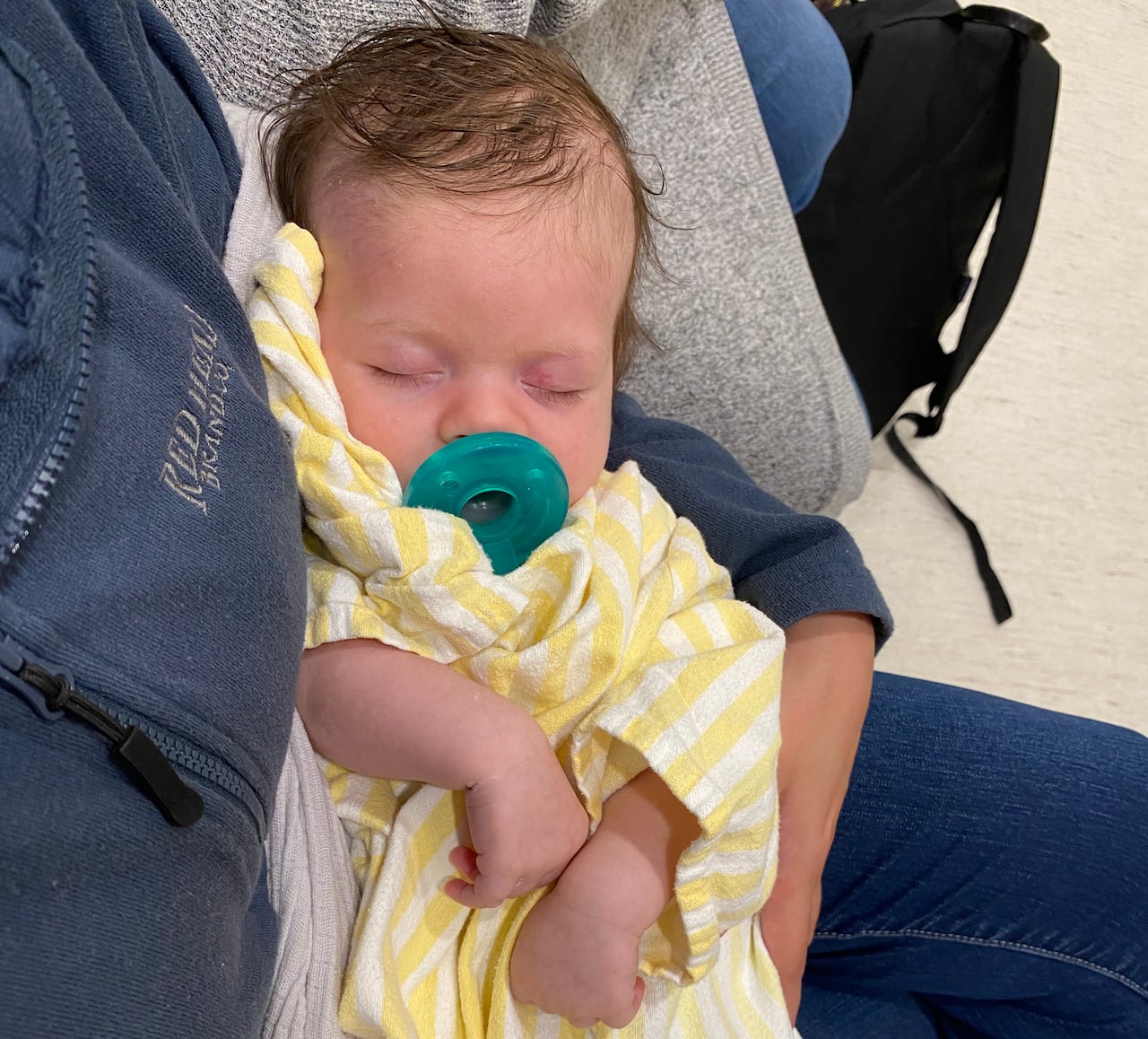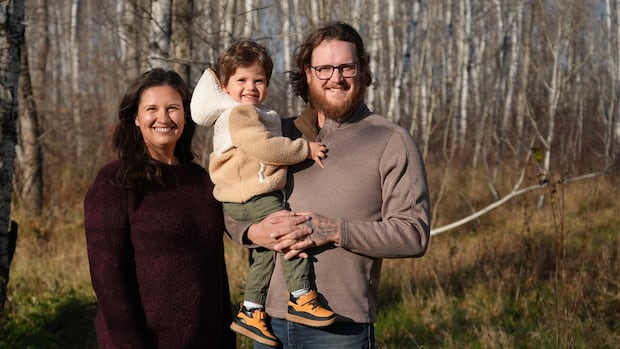It was only a week after Beau Friesen was born that his parents knew something was wrong.
Two years later, they still do not know what that is.
Now, the Grunthal, Man., couple are heading to Florida in search of answers.
As an infant, Beau was throwing up and had a distended stomach.
First-time parents Tanner and Jordana Friesen brought him to their family doctor in Steinbach, who, after seeing the symptoms and ordering an X-ray, sent the family to the Children’s Hospital in Winnipeg the next morning.
“That was kind of the start of our whirlwind next few weeks and months in our journey,” said Tanner.
Up to five times a week, the Friesens drove from their home in Grunthal, about 60 kilometres south of Winnipeg, to visit teams of specialists in gastroenterology, orthopedics, neurology and genetics.
Nobody could determine what was causing the growing number of symptoms.
“We’ve learned more about the human body in the last two years than I think we’d care to know,” said Tanner.
Beau, now two years old, has decreased muscle tone. That had him crawling and walking later than most kids, and leaves him tired and slipping down chairs at daycare. He also has problems with slow digestion, and global developmental delay that affects his motor functions and speech.
The Friesens’ genetic counsellor in Winnipeg recommended they seek out Dr. Parul Jayakar — a Manitoba-trained pediatrician who is now at the forefront of the field of genetics as the chief of clinical genetics and metabolism at the Undiagnosed Disease Clinic at Nicklaus Children’s Hospital in Florida.
They hope Jayakar will finally give them the answers they need to help their son through genome sequencing — testing to find variants in a patient’s unique genetic code by comparing their DNA with a healthy person’s DNA, which researchers have said could help pinpoint diagnoses in rare diseases earlier.
“Our goal has always been to be able to give him the best care for his future, as well as, if we get the opportunity, to help science and maybe help another family that’s going through something similar,” said Tanner.
Getting a diagnosis would also help with funding for support programs, Beau’s parents say.

Though they’ve found support from family, friends and patient advocates, without knowing what they are dealing with, trying to find answers to Beau’s health problems is still a lonely journey, Jordana said.
“A diagnosis brings more than potentially peace for us, but also brings a sense of community. It brings a sense of peers for him that we can associate with.”
Manitoba to Miami
The Undiagnosed Disease Clinic’s Jayakar worked toward her master’s degree with the University of Manitoba at Winnipeg’s Health Sciences Centre in the 1980s, while her husband was doing a fellowship in the province. It was in Winnipeg an instructor suggested she explore the relatively new field of genetics.
Jayakar then went to Florida to finish her education and eventually joined the Miami hospital.
After gathering as much information as she can on family history and previous tests on her patients, her clinic takes swabs from the child’s cheek and analyzes their genes for variants that might explain their symptoms. The hope is that will lead to a treatment plan and potentially genetic therapy.
But even if they do not immediately find an answer, the testing can provide hope, says Jayakar.
“I tell the patient, ‘If I don’t know today, don’t give up. I might know tomorrow, day after, but it’ll come eventually,'” she said.
“I diagnose patients who aren’t diagnosed for 15 years, and now with the new technology, we find a diagnosis for them.”
Genome sequencing of this kind is not available in Manitoba.
The Friesens are paying the doctors for their time, the flight out and a few days in a hotel. Use of the genome sequencing equipment is covered by the clinic. They’ll also fly back to get the results four to eight weeks later.
But Manitoba Health will not cover the costs of the trip, they said. The Friesens, who have not received any money from the province, have started a GoFundMe campaign to raise money to cover the costs.
Manitoba Health’s policy for approved referrals to the United States is to cover doctor bills at the same rate a Manitoba doctor would receive for similar services. “Reasonable transportation costs” may also be covered, but accommodations and other expenses are not.
“It’s kind of a gamble, us going. We might not get answers,” said Jordana, glancing at Beau.
“Hopefully we do, but he might be so rare that they haven’t discovered anything yet.”
Beau never seemed to stop smiling as he tested the durability of the floor with a toy plane while his parents explained all he has been through, curiously looking at the microphone into which they told his story.
“He is a blessing,” said Jordana, smiling.
Manitoba expands genetic tests
Manitoba’s provincial specialty lead for genetics, Dr. Patrick Frosk, says for about a decade, the province has used exome monogenic sequencing — a test that looks for differences in a gene that may result in a monogenic disorder, meaning one caused by an alteration in a single gene.
But it is not as advanced as full genome sequencing, which Frosk believes is the future of genetic testing.
“Instead of focusing on only genes, it takes out all the processing steps and looks at everything, including all the … empty [genetic] regions that we don’t understand very well,” said Frosk.
Frosk said exome sequencing has expanded, and 100 to 150 people are now tested yearly.
But getting results and analysis, which accounts for the bulk of the cost, can now take a year. Dangerous acute cases are sometimes sent to labs outside the province to get answers in a few weeks.

Frosk agrees with Jayakar that genetic testing is a quickly evolving area of knowledge.
“Sometimes the problem is not that we didn’t detect the issue, it’s that we didn’t interpret it correctly, because our knowledge is constantly changing. We’re designing new tests and then describing new conditions every month,” said Frosk.
He added that the younger a person can be diagnosed, the better it is for treatment, especially for conditions that can get worse.
But that doesn’t mean genetic testing is a catch-all diagnostic tool, said Frosk. Cancer and diabetes, for example, involve more than one gene, and factors like family history and diet are also important considerations, said Frosk.
But Jayakar said the future of treatment has arrived, with the ability to “augment” faulty genes that cause debilitating conditions.
“Gene therapy — it’s already here,” she said.







